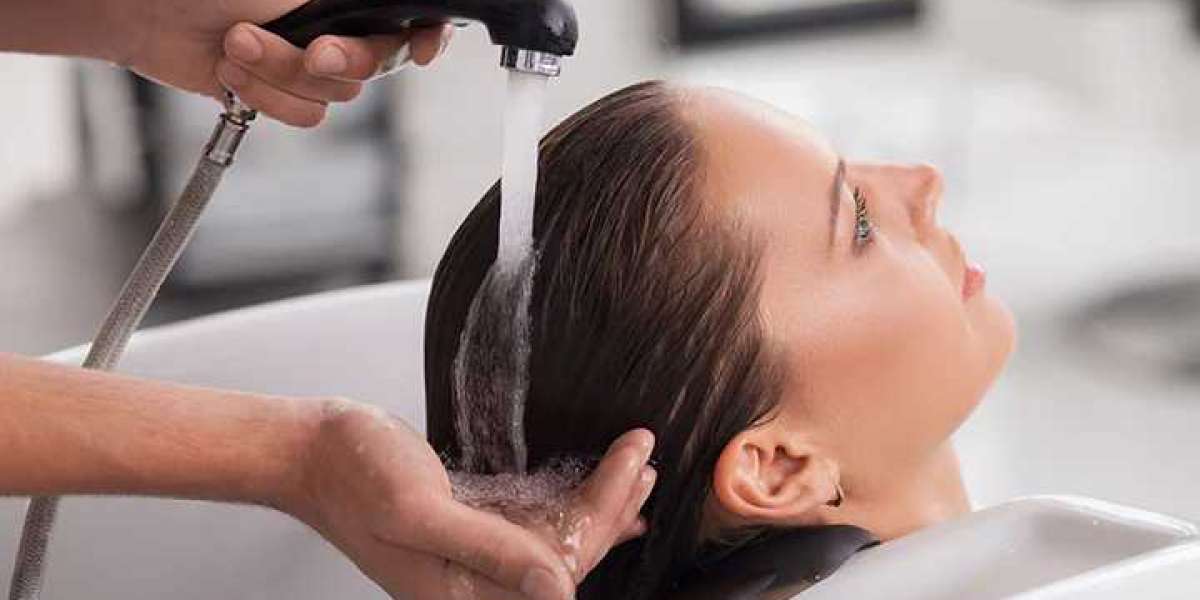The quest for lustrous, healthy hair is a universal one. Countless products flood the market, each promising the secret potion to thicker, stronger strands. Biotin shampoo has emerged as a frontrunner in this pursuit, touted for its ability to stimulate growth and transform lifeless locks. But before you blindly trust the hype, let's embark on a journey to understand the science behind biotin and its role in hair health.
Biotin: The Essential Building Block
Biotin, also known as vitamin B7, is a water-soluble vitamin that plays a crucial role in numerous bodily functions, including hair growth. It's part of the B-complex group, which assists in converting food into energy. Biotin is naturally found in a variety of foods such as eggs, nuts, seeds, avocados, and some dairy products.
Now, how does this translate to hair health? Biotin acts as a coenzyme, facilitating the production of keratin. Keratin is the primary protein that constitutes the hair shaft, essentially the building block that determines a strand's strength and structure. Biotin also aids in the production of fatty acids, which contribute to scalp health by maintaining moisture and preventing dryness.
The Science Behind Biotin and Hair Loss
Hair loss is a complex issue with various contributing factors, including genetics, hormonal imbalances, stress, and nutritional deficiencies. While biotin is essential for hair health, a deficiency in this vitamin can lead to hair thinning and even alopecia (hair loss). Studies have shown that individuals with biotin deficiency often experience hair loss alongside other symptoms like brittle nails, scaly skin, and fatigue.
However, the question remains: can supplementing or using topical biotin reverse hair loss caused by other factors? Here's where the research gets murkier. Most studies investigating the efficacy of biotin for hair growth have focused on individuals with documented biotin deficiencies. In these cases, supplementation has shown promising results in improving hair growth and thickness.
For individuals without a biotin deficiency, the evidence for topical biotin (found in shampoos) promoting hair growth is limited. While some studies suggest a potential benefit, the research is inconclusive, and more robust studies are needed to draw definitive conclusions.
Beyond Hair Growth: Unveiling the Benefits of Biotin Shampoo
Even though the jury's still out on biotin's ability to dramatically increase hair growth, biotin shampoos can still offer several benefits for your hair and scalp:
- Strengthening Hair: Biotin aids in keratin production, which leads to stronger hair strands. This translates to less breakage, split ends, and overall healthier hair.
- Promoting Scalp Health: Many biotin shampoos contain additional ingredients like coconut oil, aloe vera, or panthenol that soothe the scalp, reduce inflammation, and combat dryness. A healthy scalp environment promotes optimal hair growth.
- Enhanced Volume and Shine: Biotin shampoos can add a touch of volume and shine to hair. This is because they can help hair retain moisture, making it appear fuller and healthier.
Biotin Shampoo: A Viable Addition or a Marketing Gimmick?
So, should you incorporate biotin shampoo into your hair care routine? Here's the takeaway:
- Limited Research for Hair Growth: For those hoping for a magical boost in hair growth, especially if hair loss is caused by factors other than a biotin deficiency, biotin shampoo alone might not be the answer.
- Focus on Overall Health: A balanced diet rich in biotin and other essential nutrients like iron, zinc, and protein remains the cornerstone of healthy hair growth.
- Individual Results: The effectiveness of any hair care product is highly individual. While biotin shampoo may work wonders for some, it might not be a game-changer for others. Experimentation and identifying what works best for your hair type is key.
Beyond the Bottle: Exploring Alternative Hair Loss Solutions
If you're experiencing significant hair loss, it's essential to consult a dermatologist. They can help identify the underlying cause and recommend appropriate treatment options. Depending on the cause, treatment options may include:
- Minoxidil: A topical medication clinically proven to promote hair growth.
- Finasteride: A medication used to treat male pattern baldness by blocking the conversion of testosterone to DHT, a hormone linked to hair loss.
- Hair transplantation: A surgical procedure that involves transplanting healthy hair follicles from a donor area to the balding area.
- Scalp Micropigmentation: A cosmetic procedure that creates the illusion of thicker, fuller hair by depositing pigment into the scalp.
The Final Verdict: A Multifaceted Approach to Healthy Hair
Biotin shampoo can be a helpful addition to your hair care routine, especially if you struggle with brittle hair or a dry scalp. However, it's unlikely to be a miracle cure for hair loss caused by other factors. Remember, healthy hair growth
stems from a holistic approach. Here are some additional tips to promote healthy hair growth:
- Manage Stress: Chronic stress can disrupt the hair growth cycle and lead to shedding. Relaxation techniques like yoga or meditation can be beneficial.
- Scalp Massage: Regular scalp massages can improve blood circulation to the scalp, promoting hair growth.
- Get Enough Sleep: Aim for 7-8 hours of sleep per night. During sleep, the body repairs and rejuvenates tissues, including hair follicles.
- Limit Heat Styling: Excessive use of heat styling tools like blow dryers and straighteners can damage hair. Opt for air drying whenever possible or use heat protectant sprays.
- Drink Plenty of Water: Adequate hydration is crucial for overall health, including hair. Aim for 8 glasses of water per day.
By combining a balanced diet, stress management, healthy hair care practices, and potentially a biotin shampoo, you can create an environment that fosters healthy hair growth and keeps your locks looking their best. Remember, consistency is key! Don't expect overnight results, but with dedication to these practices, you can witness a noticeable improvement in your hair's health and appearance.
Ultimately, the decision of whether to incorporate biotin shampoo into your routine depends on your individual needs and hair goals. It's a safe option with potential benefits, but for significant hair growth concerns, consulting a dermatologist remains the best course of action. With the right approach, you can achieve the healthy, luscious hair you've always dreamed of.








